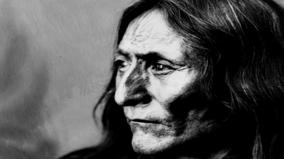New release
Coming
None
Quelque chose de bien
2009
4 min
Leaving soon
Daniel a perdu la garde de ses enfants. Il peint avec fougue et passion afin que sa fille puisse dire « Mon père est un artiste ». Depuis 2004, le Wapikoni mobile donne aux jeunes des Premières nations du Québec l’occasion de s’exprimer par le biais de réalisations vidéo et musicales. Cet essai a été réalisé grâce à ces studios ambulants et fait partie du DVD - Sélection 2008 - Wapikoni mobile.

Details
Daniel a perdu la garde de ses enfants. Il peint avec fougue et passion afin que sa fille puisse dire « Mon père est un artiste ».
Depuis 2004, le Wapikoni mobile donne aux jeunes des Premières nations du Québec l’occasion de s’exprimer par le biais de réalisations vidéo et musicales. Cet essai a été réalisé grâce à ces studios ambulants et fait partie du DVD - Sélection 2008 - Wapikoni mobile.
-
directionTracy McLaren
-
producerManon Barbeau

















